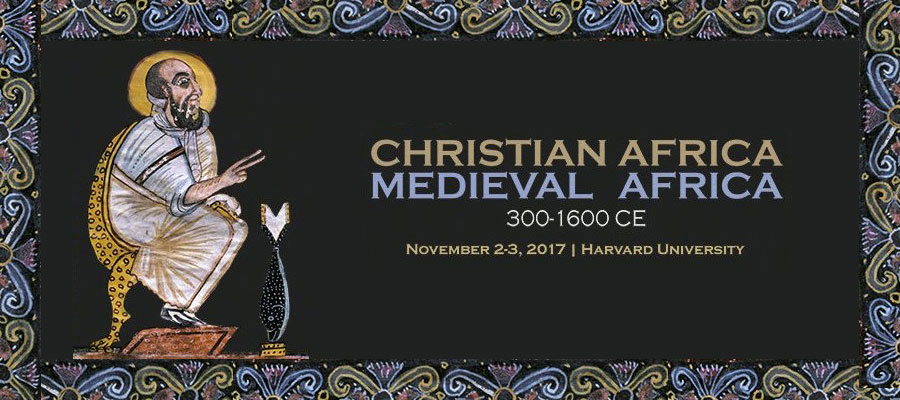Christian Africa/Medieval Africa, 300-1600 CE, Harvard University, November 2–3, 2017
From its earliest days, Christianity was woven deeply into the fabric of Roman Africa. Cities like Alexandria and Carthage quickly emerged as institutional, intellectual, and cultic centers of the newly ascendant church in the fourth century, while thinkers like Cyprian, Cyril, and Augustine confirmed Africa's critical role within the development of Christian theology and practice. Within three hundred years, however, "African Christianity" would take on a new and much broader significance, as Ethiopian and Nubian rulers to the south and east adopted and elaborated upon the Christian beliefs and institutions of the Romano-Byzantine world. The kingdoms and Christian communities that resulted would endure centuries after their northern neighbors were conquered by the armies of Islam, maintaining or re-establishing relationships with medieval and early modern Mediterranean Christendom. In West and Central Africa, too, Christianity made its mark through the transmission and influence both of material culture from the Christian east and of ideas and beliefs from the Christian west, epitomized by the adoption of Christianity by Kongo's rulers in the fifteenth century and the creation of a Central African Christian empire in the decades that followed.
The two-day symposium Christian Africa/Medieval Africa will explore this long, rich, and complex history of Christian beliefs, institutions, and communities in Africa between Late Antiquity and the seventeenth century CE. Bringing together an international group of researchers in a variety of disciplines, our aim is to encourage and advance the study of a crucial but lesser-known aspect of Africa's history, a goal best accomplished through collaboration and conversation between scholars of medieval studies, African studies, Byzantine studies, archeology, book history, and the history of religion. Continuing work begun with the 2015 Harvard conference Medieval/Africa: The Trans-Saharan World 500-1700, this symposium also represents an ongoing effort by Harvard's African Studies and Medieval Studies communities to explore the myriad of ways in which a globally-understood "medieval world" engaged with and encompassed Africa's diverse peoples, polities, and cultures.
These events are free and open to the public, but registration is required.
